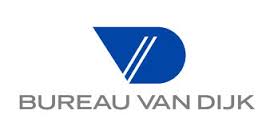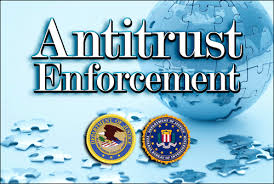![]() In this era of aggressive enforcement, global companies have to integrate beneficial ownership requirements when conducting due diligence of business associates and when engaging customers. For most businesses, beneficial ownership is critical in two main legal contexts: sanctions compliance and FCPA risk. Both of these areas present significant risks to any US company conducting business overseas, regardless of what industry. Of course financial institutions face FinCEN’s new CDD rule, requiring them to collect beneficial ownership information, starting in May 2018, but that is a whole topic in itself. Identifying beneficial owners has always been a challenge but luckily there are research tools to help, such as Bureau van Dijk’s Orbis database.
In this era of aggressive enforcement, global companies have to integrate beneficial ownership requirements when conducting due diligence of business associates and when engaging customers. For most businesses, beneficial ownership is critical in two main legal contexts: sanctions compliance and FCPA risk. Both of these areas present significant risks to any US company conducting business overseas, regardless of what industry. Of course financial institutions face FinCEN’s new CDD rule, requiring them to collect beneficial ownership information, starting in May 2018, but that is a whole topic in itself. Identifying beneficial owners has always been a challenge but luckily there are research tools to help, such as Bureau van Dijk’s Orbis database.
In June, Bureau van Dijk held a very insightful webinar on this topic, which was followed up with another last month. You can view the webinars from start to finish here and here. Both webinars touch on some very interesting topics, with the first revealing some interesting best practices information from the polls conducted. Overall, attendees of the first indicated an even split between organizations where beneficial ownership screening processes had been implemented, had only recently been implemented, and were in process. Only 17% of attendees had no plans for a beneficial ownership program.
It is encouraging to see organizations addressing this issue. Without beneficial ownership information, you are taking significant risks when it comes to sanctions and FCPA compliance. The challenge many compliance professionals face is explaining why beneficial ownership should be a concern and why resources should be devoted to addressing it. Bureau van Dijk’s webinar focuses on the ways in which software tools and AI can actually be less resource intensive than human-led processes.![]()
To help you make the case for beneficial ownership tools, I’ve summarized the key risk areas below. It is important to focus on these risks – making the case to address beneficial ownership must start with explaining the risks of not addressing it.
Importance of Beneficial Ownership: Sanctions Risk.
The Office of Foreign Asset Control (“OFAC”), within the Treasury Department, maintains a list of sanctioned individuals and entities. These sanctions programs are all based on diplomatic goals and are generally aimed at bad actors around the world. Doing business with a sanctioned entity or individual exposes you to significant fines and penalties. In today’s political climate several of the more comprehensive sanctions programs could change at any moment – North Korea-related sanctions against Chinese entities, Russia-related sanctions, and Iran sanctions are all programs with significant uncertainty surrounding their scope. Sanctions compliance is strict liability – meaning that these changes must be complied with immediately. Sanctions screenings must be conducted in real-time.
Most companies have a screening program in place to screen the names of their third party business partners against sanctions lists. But what about the person who owns the company? That is where OFAC’s “50 Percent Rule” comes into play. The 50 Percent Rule applies where multiple sanctioned entities or individuals (“SDNs”) own fifty percent or more of a related entity. So, for example, if two SDNs own 30 percent, respectively in a related entity and a third non-SDN entity owns the remaining 40 percent, the entity itself will be blocked and any subsidiary or subordinate entity would be blocked as well. The new policy, as defined in the example above, is satisfied because multiple SDNs (each owning 30 percent) own 50 percent or more of the related entity.
![]() OFAC has provided some examples of how the new policy will be enforced. One is interesting to note. If Blocked/SDN Person X owns 50 percent of Entity A and 50 percent of Entity B, and Entities A and B each own 25 percent of Entity C, then Entity C is considered blocked.
OFAC has provided some examples of how the new policy will be enforced. One is interesting to note. If Blocked/SDN Person X owns 50 percent of Entity A and 50 percent of Entity B, and Entities A and B each own 25 percent of Entity C, then Entity C is considered blocked.
The 50 Percent Rule raises the stakes on beneficial ownership. Your board and senior executives must know not only who they are contracting with, but the actual people with which they are doing business.
Importance of Beneficial Ownership: FCPA Risk.
We have seen many enforcement actions where a company does business with a third party, such as a consultant or joint venture partner, only to “discover” that the third party is owned by a government official and the payments received by the third party are actually thinly disguised bribes.
Perhaps the best recent example of this is VimpelCom. The $795 million enforcement action of 2016 shows why a company must absolutely require beneficial ownership information to proceed with significant transactions. The bribery facts are instructive. Vimpelcom paid $114 million in bribes to a government official, the daughter of the Uzbek President, over a six-year period. The President’s daughter is notoriously corrupt and flaunted her wealth earned from not only Vimpelcom but other bribe payors.
The scheme itself involved her ownership in a shell company and in a second, smaller telecomm company in Uzbekistan. She was able to exert influence over the Uzbek telecomm agency to carry out her bribery scheme.
The $114 million in bribe payments largely consisted of:
- 5 million bribe paid to the foreign official’s shell company as a presumed local partner;
- $25 million bribe with the foreign official’s shell company to obtain a license for 4G frequencies;
- $32 million in consulting payments for sham services to the foreign official’s shell company; and
- $20 million in payments through Uzbek resellers to the foreign official’s shell company.
Additionally, VimpelCom paid $60 million for Unitel’s competitor, a company in which the foreign official held an ![]() indirect ownership interest.
indirect ownership interest.
After looking at these facts, every compliance professional should be checking their anti-corruption and due diligence policies to make sure this couldn’t happen at their organization. Appropriate due diligence must include a requirement that beneficial ownership information be collected and in significant cases, such as entering into a multi-million dollar joint venture, be independently confirmed. This is where beneficial ownership technological tools can streamline the review. The speed and efficiency of beneficial ownership information AI tools, such as Bureau van Dijk’s Orbis database, can strengthen your case for ensuring that beneficial ownership information is part of the requirements in your organization’s largest deals.
The post Making the Case for Requiring Beneficial Ownership Information appeared first on Corruption, Crime & Compliance.
 Webinar: DOJ Issues New Compliance Evaluation Guidance
Webinar: DOJ Issues New Compliance Evaluation Guidance June 6, 2017
June 6, 2017 I was honored to participate with Ted Datta and Bill Hauserman from Bureau Van Dijk concerning unraveling corporate structures. Beneficial ownership is a critical issue that companies have to address in their due diligence and compliance programs.
I was honored to participate with Ted Datta and Bill Hauserman from Bureau Van Dijk concerning unraveling corporate structures. Beneficial ownership is a critical issue that companies have to address in their due diligence and compliance programs. Sign Up for Three-Part Webinar Series:
Sign Up for Three-Part Webinar Series: 2016 FCPE Enforcement and Compliance Year in Review
2016 FCPE Enforcement and Compliance Year in Review
 March 1, 2017, 12 Noon EST
March 1, 2017, 12 Noon EST June 6, 2017
June 6, 2017 The Importance of a Risk and Compliance Program Assessment
The Importance of a Risk and Compliance Program Assessment On June 28, 2017, Bureau van Dijk, a sponsor of my blog, conducted a webinar on the importance of beneficial ownership information to corporate compliance functions. The blog posting by Alistair King is
On June 28, 2017, Bureau van Dijk, a sponsor of my blog, conducted a webinar on the importance of beneficial ownership information to corporate compliance functions. The blog posting by Alistair King is 
 Eighty-five (85) percent of the respondents agreed on the importance of monitoring beneficial ownership information for the life of a third party.
Eighty-five (85) percent of the respondents agreed on the importance of monitoring beneficial ownership information for the life of a third party. Webinar: Is Your Company “At-Risk” for a Government Enforcement Action?
Webinar: Is Your Company “At-Risk” for a Government Enforcement Action? Date
Date Webinar: ISO 37001 — A Review of the Anti-bribery Risk Management System
Webinar: ISO 37001 — A Review of the Anti-bribery Risk Management System Webinar: How to Conduct Periodic Reviews and Assessments of Your Compliance Program
Webinar: How to Conduct Periodic Reviews and Assessments of Your Compliance Program Wednesday, November 29, 2017
Wednesday, November 29, 2017 In this era of aggressive enforcement, global companies have to integrate beneficial ownership requirements when conducting due diligence of business associates and when engaging customers. For most businesses, beneficial ownership is critical in two main legal contexts: sanctions compliance and FCPA risk. Both of these areas present significant risks to any US company conducting business overseas, regardless of what industry. Of course financial institutions face FinCEN’s new CDD rule, requiring them to collect beneficial ownership information, starting in May 2018, but that is a whole topic in itself. Identifying beneficial owners has always been a challenge but luckily there are research tools to help, such as Bureau van Dijk’s Orbis database.
In this era of aggressive enforcement, global companies have to integrate beneficial ownership requirements when conducting due diligence of business associates and when engaging customers. For most businesses, beneficial ownership is critical in two main legal contexts: sanctions compliance and FCPA risk. Both of these areas present significant risks to any US company conducting business overseas, regardless of what industry. Of course financial institutions face FinCEN’s new CDD rule, requiring them to collect beneficial ownership information, starting in May 2018, but that is a whole topic in itself. Identifying beneficial owners has always been a challenge but luckily there are research tools to help, such as Bureau van Dijk’s Orbis database.
 OFAC has provided some examples of how the new policy will be enforced. One is interesting to note. If Blocked/SDN Person X owns 50 percent of Entity A and 50 percent of Entity B, and Entities A and B each own 25 percent of Entity C, then Entity C is considered blocked.
OFAC has provided some examples of how the new policy will be enforced. One is interesting to note. If Blocked/SDN Person X owns 50 percent of Entity A and 50 percent of Entity B, and Entities A and B each own 25 percent of Entity C, then Entity C is considered blocked. indirect ownership interest.
indirect ownership interest. Wednesday, November 29, 2017
Wednesday, November 29, 2017 How to Implement an Effective Sanctions Compliance Program
How to Implement an Effective Sanctions Compliance Program







